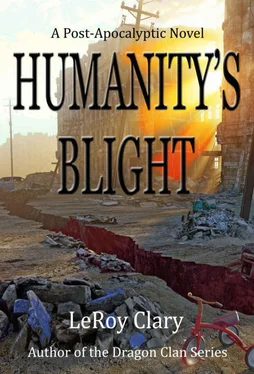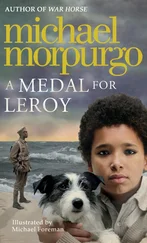That was quite a speech by a fourteen-year-old girl who had lost her whole family, home, and future. When we went through Darrington on the motorcycle, she had pointed out her house. When we continued and went through Arlington near my home, I’d looked from the highway up the hill to where our house stood. It was a brief look. While I couldn’t see it, I saw a column of smoke. It was probably another house.
We remained quiet for a long time. No words came to me that would equal hers. Eventually, I grumbled, “Me too.”
She said, “So, what did you two bring me other than a tin boat instead of our kayaks?”
“Aluminum boat, not tin. I’ll pull it up here close and get in and hand you what’s inside. We can sort through it as we sail.” A glance at the GPS told me I had about a half-hour before turning east to go around the lower tip of Whidbey Island before turning almost directly north.
After the jib was lowered and Truant slowed, I stood and turned to the stern. The rope was tied to a cleat near my hand. I pulled the rowboat closer and I tied it off shorter so I could climb inside. It bounced and swayed in the wind and current and wouldn’t hold still. Finally, I leaped and landed on the floor with a crash, and almost fell over the side before grabbing a metal seat until the boat stabilized. I lifted a pillowcase and realized it was too heavy to hand across. I pulled out a box of shells and handed it to Sue, then another and another.
She took the rifles and ammunition, smiling all the while. Weapons made us safer. The first aid kit added to her smile, the bottles of aspirin and other medications helped broaden it, but when I pulled the can openers free, she looked like a boyfriend had surprised her with an unexpected box of chocolates on Valentine’s Day.
There were packets of dehydrated meals, powdered milk, and dozens of other food items I hadn’t taken the time to examine in the house and now handed to her. She steadied me with her hand as I climbed back aboard and let the rope stretch longer again.
She spread it all beside her on the benches in the cockpit we sat on, examining each item with care. She separated the items into neat piles, some destined for the kitchen, others for our growing armory, and tools in the storeroom. She looked up with an impish grin. “We have to talk. The next time you go shopping there are important considerations you’re missing.”
“Like what?”
“Taco seasoning. Refried beans. Dried cilantro.”
“Hot dogs. Cold beer. Potato chips,” I countered with a chuckle.
“Ice cream. Cake. Chocolate.”
I knew she would get to chocolate sooner or later. “Pizza. Chicken nuggets. Chinese food. And hamburgers. And college football on TV.”
Instead of continuing the verbal game of what we missed the most, she turned away and started sorting the ammunition. The boxes were soft from the damp and falling apart from the moisture in the air and on the seat. The shells were mixed. She went into the cabin and returned with large bowls. We filled them with bullets, a bowl for each of the three kinds. We needed more bowls, so we used the pillowcases for the leftovers. We were prepared for a small war.
Twenty-five shotgun shells to a box and we had four boxes loaded with solid slugs instead of BBs, all of them in green casings. The ones filled with buckshot were red, and we had five boxes of them, another hundred-twenty-five. Three-hundred-fifty rounds of nine-millimeter shells and the rifles both used three-oh-eight bullets, over two hundred of them—an overkill to use a bad pun.
I reloaded three of the nine-millimeter shells in my pistol to replace those I’d fired on our excursion ashore and examined the rifles in more detail. Both were dull black, the stocks and foregrips a composite material, and even the barrels were black and slightly evil in appearance. There was no chrome or nickel to reflect sunlight and warn an enemy. They were the same model, right down to the identical scopes. Both held five shells at a time, and I inserted them, then held the scopes up to look through. In the grayness of the morning, there was nothing to see.
The GPS beeped once, indicating we needed to turn. Without seeing land, the idea was daunting to turn into the unknown, but I kept the Truant on the track shown on the screen and later, we turned again, each time trimming the jib to keep it filled with air. Turning north doubled our speed, I guessed. The slight wind was hitting the sail at a better angle.
Off to our right, lost in the mist, was the home of the Truant and the city of Everett, and later, if it was a clear day, we would see where the old man’s house had exploded. Without a doubt, there was still a black scar on the ground above the beach. I felt like waving or saluting as we passed by where his house had stood at the edge of the water but felt silly.
Sue said as if she read my mind, “I wish he could have come with us.”
I managed to say without my voice choking, “He did, in some ways.”
The GPS indicated over fifty miles to Deception Pass. We were on our way to our initial destination before reaching the islands we hoped to hide in. I turned on the radar to double-check the GPS, as if it needed checking or that I knew what I was doing. When the screen settled down, there were four contacts , meaning other nearby boats or ships. One seemed to be stationary, maybe anchored. Another was far south of us and looked like it was heading where we’d recently been before deciding to sail back and travel up the other side of the island. We’d have to get on the radio and try to warn them.
The other two were moving fast, not together, but a quick estimate said all three of us would meet somewhere ahead. “Sue, go wake, Steve.”
“Trouble?”
“Maybe.” I furled most of the jib and waited.
“I see them,” Steve said as he climbed the stairs, which I took to mean he had looked at the monitor in the cabin because in the thick fog he couldn’t have seen them.
The radar said they were two miles away. Steve took the helm, turned ninety degrees so we pointed right at Whidbey Island, and hit the button for starting the engine. We quickly moved from the interception point. Then the paths of both boats turned slightly.
“We can’t outrun them,” Steve said. “They’re chasing us, so they have radar.”
Sue asked, “What do we do?”
“Ever play chicken?” he asked as he spun the wheel and the boat turned. “Because no matter what we do, they’ll catch up with us in no time and we’ll fight on their terms. If we head for them, we might put a little doubt in their minds.”
“How’s that going to work?” she asked in a tone that let us know she didn’t like the plan, yet she had suggested almost the same thing the day before with the boat that had duplicated our moves.
I watched her carefully to see if she was serious or testing Steve, or what. Her face was impassive.
Steve increased the throttle and we picked up speed. His conclusions were the same we’d come to two days ago. He snarled, “Two weeks ago, most of the people we’re likely to meet had worked in a grocery store, or bank, or were schoolteachers. They might think they are hard-asses for now, but few have ever faced violence or bullets headed their way.”
It was exactly what we’d discussed before we met him. I lifted the nearest rifle and sat the bowl of shells nearby.
Steve said, “Sue, take the wheel. No, not here. Steer from inside the cabin. Use whatever you can find to build a barrier around you for protection and stay low. Do it fast. You have about two minutes. No matter what happens, you go straight even it if means we run into one of them, which won’t happen.”
“We show no fear,” she said as she punched me playfully on my shoulder on her way inside. “I got it.”
Читать дальше












